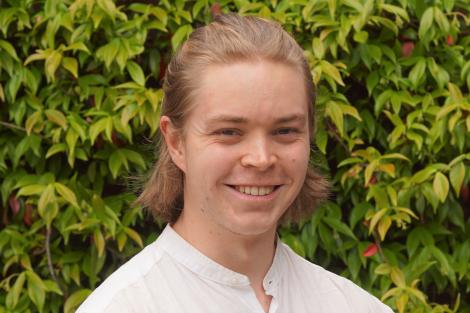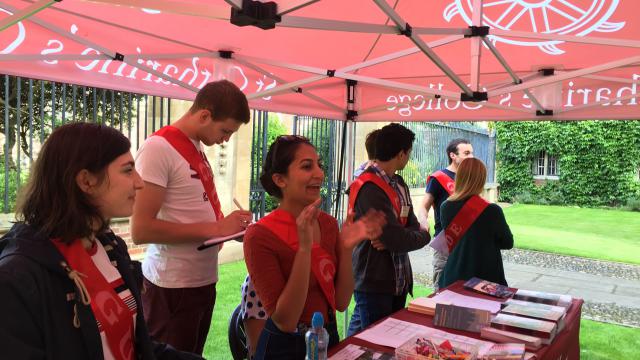Name: Pétur (Peter) Einarsson Nielsen
Hometown: Reykjavík, Iceland
Extracurricular activities: Cycling, travelling
Degree: PhD in Physics
Life before Catz
“In the final of my undergraduate degree in Physics at Durham University, I realised that I wanted to continue my studies as a postgraduate research student. I knew that taking on a PhD would be a massive commitment so I decided to take time away from higher education to be absolutely sure it was the right decision before applying. Working in industry allowed me to develop skills such as how to manage large projects to set them up for success. Ultimately I felt my time in academia wasn’t finished and I applied to continue my studies.”
Life at Catz
“I chose to apply to St Catharine’s College primarily because of the College’s strong connection with the Harding Programme. I had also heard that the College had a reputation for being particularly friendly – which has proved to be true! The MCR Committee ensures there is a close-knit network of postgraduates here, and organises a range of activities to welcome new students and encourage you to meet new people. I’m a fan of the wine and cheese nights and the postgraduate seminar series, which is a really good way to find out what other people are researching and goes above and beyond what other Colleges offer.”
Postgraduate studies
“Materials at extremely low temperatures can behave in weird and wonderful ways. Close to absolute-zero temperature, new states of matter can be observed where material properties deviate significantly from how they behave at everyday temperatures. One such state is superconductivity - where electrons are able to flow through a metal without any electrical resistance. We already make use of superconductivity to improve lives, such as for superconducting magnets in MRI machines, but now the push is to develop new materials with improved superconducting properties for further and more widespread application. In my work I focus on unconventional types of superconductivity, where the interactions which lead to the phenomena are not yet fully understood. My day-to-day work involves synthesising new crystalline materials and characterising their electrical, thermal, and spectroscopic properties in order to develop a deeper fundamental understanding of how they might be able to reach a superconducting state.”
The Harding Distinguished Postgraduate Scholars Programme
“The funding provided by the Harding Programme is very generous and relieves many of the day-to-day pressures faced by others such as living costs and allows me to focus on my research. The additional personal research allowance is also provided up front which allows for much more flexibility when compared to other schemes and means research isn’t disrupted due to tasks like as requesting reimbursements. I have also appreciated the training events put on for the Scholars on topics such as grant writing, which have been fun and informative.”
Advice for undergraduates thinking of applying for postgraduate studies
“First, figure out if you are applying for the right reasons. Then get to know the people you might be interested in working with by reaching out early on to the principal investigators (PIs) at Cambridge or other institutions. It is important to understand if a particular group has the right atmosphere and working culture for you. For instance, do you want more structure or less?”






